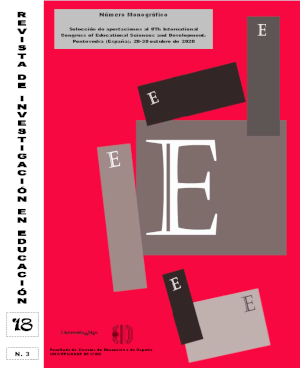Curricular flexibility for the participation of Families in Early Childhood Education
DOI:
https://doi.org/10.35869/reined.v18i3.3266Keywords:
Family School Relationship, Early Childhood Education, Curriculum Research, Family Involvement, School OrganizationAbstract
Family participation in the Early Childhood Education stage is a factor of special relevance for the educational process as a whole. To address the foundations of this premise, from this work two fundamental objectives are established: to analyze the opinion of families with children in the early childhood education stage to identify what the flexible actions promoted by educational centers are focused on and to determine the influence of the variables “time of relationship with the center” and “educational level of the students” in relation to the considerations on the curricular flexibility of the educational centers. Based on the approaches of the quantitative paradigm, a survey-type research is developed, supported by a descriptive and correlational, non-experimental and cross-sectional design, in which 88 families are surveyed. As conclusions, families acknowledge the existence of measures or actions that make the infant education curriculum more flexible and that allow them to participate in the educational process (the relationship is more intensified in families that have been in contact with the center for less time), although it is largely limited to aspects of less pedagogical impact.
Downloads
Downloads
Published
Issue
Section
License
The acceptance of the papers for publication, means that the printing and reproduction rights are owned by the journal. The conditions of use and reuse of content are those established in the Creative Commons CC BY-NC-ND 4.0 license.



